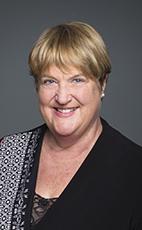Mr. Speaker, tonight I rise regarding a question I asked the minister several months ago. Although a lot of time has passed, I think the issue is even more relevant today than when I asked it at that time, which I certainly did not feel I got a satisfactory response to.
It was about the National Inquiry into Missing and Murdered Indigenous Women and Girls. At the time, the Minister of Crown-Indigenous Relations had just granted the commissioners a limited six-month extension. It is important to say from the outset that when the government decided to move ahead with this inquiry, all parties in the House said they would support it, but it was not unconditional support. It was a support in the expectation that the government would create success.
What we meant by success is so important. It was peace for the families, for them to be able to share their tragedies, knowing that someone cared and was listening to them and that perhaps even some of the cases would be reflected on again. The other important thing that we wanted to see was a positive path forward with action items. Those were important, and we truly are waiting. We will see if we get that kind of response.
The inquiry's original budget was $53 million and we wanted to know how it was spent. We wanted to know how much funding would be associated with the extension. Of course, we did not get any answer at that time, but last week in the supplementary estimates, we noticed that $38 million was added to the inquiry. The budget now stands at $92 million for the two and a half years. I cannot help but compare that with to the Truth and Reconciliation Commission, which had a six-year mandate, or perhaps three times the length of this inquiry, but did it with $60 million. We have $98 million for a two and a half year inquiry, and approximately $60 million that was spent on the Truth and Reconciliation Commission.
We are still looking for some clarity. Why was $38 million needed for a six-month extension when the majority of the work, hopefully, was done in those first two years with the initial budget?
This is important because $38 million represents indigenous opportunities to do things. We have grassroots organizations across this country, especially our urban indigenous groups. Whether it is in support of their plan, whether it is a friendship centre, or whether it is some of the other urban aboriginal organizations, they are making a difference on the ground. What has happened to them? Their funding is on halt while the government says it has to put the programs on hold because it needs to do some more consultations. There is $38 million that is going to the inquiry for six months to finish this initiative, but meanwhile we have urban indigenous organizations that are actually doing the important work on prevention and yet are being told, “Sorry, we need to have some further consultations. Maybe next year we will have some funding for you.“
The government members promised to continue with important action while they did the inquiry and, quite frankly, they are failing.

